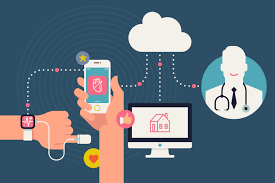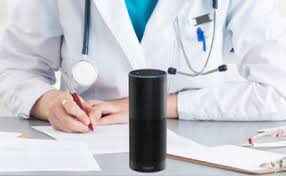Nuance Audio is a new option for people who resist traditional aids, from the company that makes Ray-Bans and operates LensCrafters.
Seekers of Meaning Podcast Posted Online March 7, 2025
What's Next Longevity Deal Talk Episode 32, January, 2025
Presentation: What's Next Longevity Venture Summit, June, 2025

 HIMSS 2019 is where 43,000 health IT enthusiasts engage. Per their own
HIMSS 2019 is where 43,000 health IT enthusiasts engage. Per their own  Voice First is changing health and wellness offerings today. Already the
Voice First is changing health and wellness offerings today. Already the